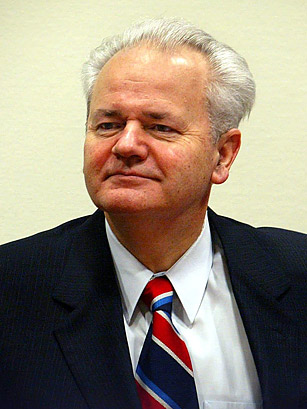
On a fateful mid-October day in 2000, hundreds of thousands of Serbs stormed President Slobodan Milosevic's power seat in Belgrade, setting the parliament building aflame and shutting down state television. Enough is enough, they cried, determined to destroy Milosevic's doctored election ballots and end his rule. The defiant dictator — whose strident Serbian nationalism in part led to the fragmentation of Yugoslavia and years of bloody conflict — barely admitted defeat before fleeing to Moscow. But the mass graves and war atrocities tied to his reign followed him to international court; his trial lasted five years, until the strongman died in his jail cell in 2006. A poisoned man may have gone, but the world was only partially relieved. Carla Del Ponte, the chief U.N. war-crimes prosecutor who sought to bring Milosevic to justice, told TIME, "His death before the judgment was a major blow for my office, for all the victims affected by the crimes for which he was charged and for the efforts invested in our fight against impunity ... We lost the chance to create the global picture of what really happened in Yugoslavia."